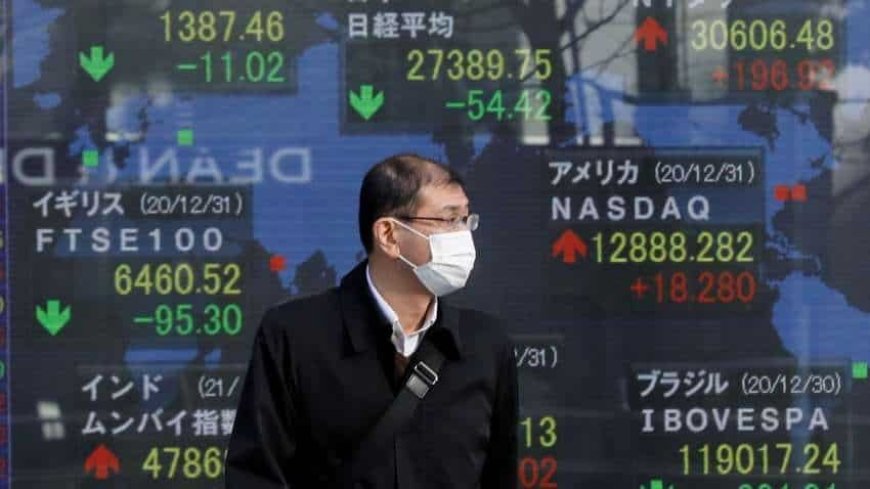US Debt Deal Bolsters Asian Stocks: Markets Gain Momentum
Surging Asian stocks on US debt deal optimism boost investor confidence. Stay informed on the latest market trends and positive sentiment across asset classes.

Asian stocks experienced a notable surge on Tuesday, driven by investor optimism following the potential resolution of a major US debt default. This positive development significantly improved market sentiment across a wide range of asset classes.
The Asia-Pacific region, excluding Japan, witnessed a strong performance with MSCI's broadest index recording a 0.4% increase early on Tuesday. This upward momentum came after a Memorial Day holiday in the United States, which saw US stocks closed for trading. However, despite this recent upswing, the index had experienced a decline of 1.3% throughout the month.
Australian shares saw a slight uptick of 0.03%, while Japan's Nikkei stock index slipped by 0.28%. The dip in the Nikkei was attributed to a temporary cooldown after reaching a 33-year high, driven by positive sentiment surrounding the US debt deal and a weaker yen, which benefits Japanese exporters.
In Hong Kong, the Hang Seng Index climbed by 0.31%, while China's CSI300 Index experienced a marginal dip of 0.06%.
Within the Asian trade market, longer-dated US Treasuries rallied as bond traders warmly received the agreement to suspend the borrowing limit in Washington.
Despite the overall positive sentiment, investors remain cautiously optimistic about the market's future outlook. James Rosenberg, an advisor at broker Ord Minnett in Sydney, expressed concerns regarding the US debt ceiling negotiations, noting that the deal resulted in a significant increase in government debt without substantial spending cuts. He emphasized the disconnect between bond markets, which suggest a 70% probability of a US recession within the next year, and the resilient equity market.
The debt deal effectively suspends the debt ceiling until January 2025, contingent upon spending caps and government program cuts.
During the opening of trade in Tokyo, benchmark 10-year yields dropped by 6 basis points to 3.7596%, while thirty-year yields fell by 5.5 basis points to 3.9207%.
Although US cash markets were closed on Monday, S&P 500 e-minis indicated a 0.32% increase, reflecting the positive response to the debt deal.
As the debt deal awaits approval from Congress, analysts at JB Were anticipate bill issuance of up to $600 billion within the next six to eight weeks. They also highlighted the potential impact of liquidity drainage from the banking system through bill issuance, which could be comparable to a 25 basis points rate hike in terms of its effect on financial conditions.
The US dollar experienced a slight 0.02% rise against the yen on Tuesday, reaching 140.47, just below the year's high of 140.91 achieved on Monday.
Meanwhile, the euro displayed a 0.1% increase, reaching $1.0714, after experiencing a 2.78% loss over the course of the month. The dollar index, which measures the greenback against a basket of major trading partner currencies, slightly declined to 104.23, remaining close to a more than two-month high. It also maintained a six-month peak against the Chinese yuan.
US crude oil observed a modest 0.3% increase, reaching $72.89 per barrel, while Brent crude fell to $77.05 per barrel.
Gold experienced a slight decrease, with the spot price settling at $1,942.39 per ounce.
Also Read: Key Focus This Week: Jobs Report and AI Hype Take Center Stage Following Debt Ceiling Deal






























































